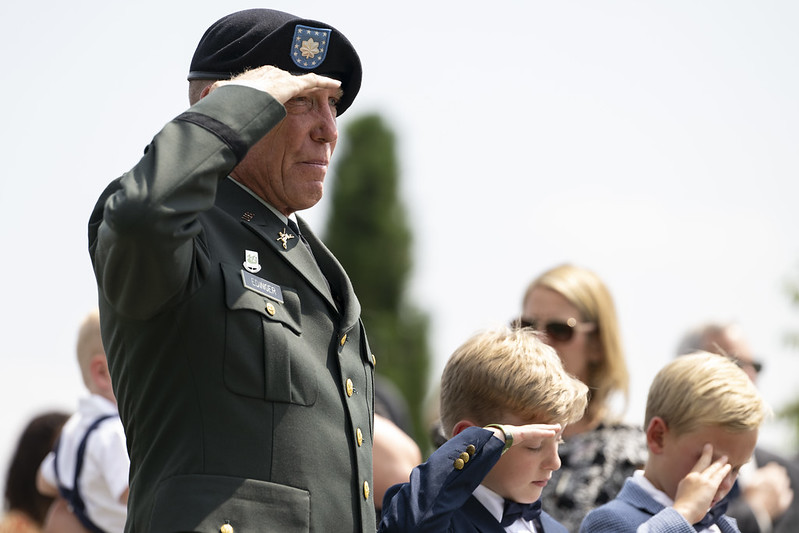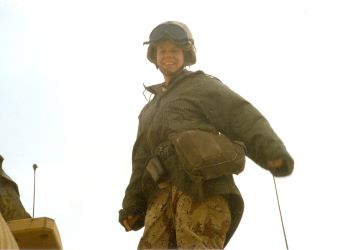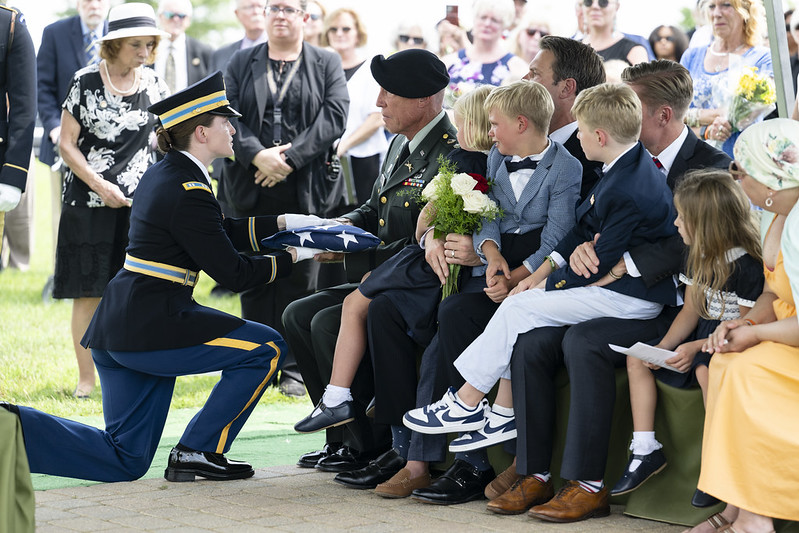
In mid-December 1990, as American forces built up in Saudi Arabia across the border from Iraq during Operation Desert Shield, U.S. Army Nurse then-Maj. Rose Marie Edinger reported to the headquarters of Maj. Gen. Barry McCaffrey, the commander of the 24th Infantry Division (Mechanized). She was there to attend a briefing and enjoy a dinner with the general and his staff. After the dinner, Edinger—who had been living on Meals Ready to Eat (MREs) for weeks —began gathering fruit from the table and putting it in her pockets.
When McCaffrey asked her about her actions, she apologized and explained she intended to bring the fruit to her fellow nurses and doctors at the 47th Combat Support Hospital. McCaffrey asked his staff why his headquarters had fruit, but his troops did not. Soon, Edinger was driving back to the hospital, followed by a truck filled with fresh fruit. Edinger’s small act had made a big difference. 
“She was so brave to have done that,” said retired U.S. Army Lt. Col. Tim Edinger, Rose Marie’s husband, who learned the story from his wife and others at McCaffrey’s headquarters. “She was always looking to make a difference in people’s lives who were less fortunate.” Tim shared the story after his wife’s funeral service at Arlington National Cemetery on July 22, 2025.
Rose Marie’s journey of service began in 1976 when she was commissioned into the Army after receiving financial support for nursing school at Misericordia College in Pennsylvania. Over the course of her 35-year career, she achieved the rank of colonel. She met Tim at her first posting at Fort Polk, Louisiana. The two married and had two sons. For most of their careers the Army ensured they were stationed together.
When Desert Shield transitioned to Desert Storm in late February 1991, Rose Marie and the rest of the 47th Combat Support Hospital advanced 100 miles into Iraq. There, they treated American casualties as well as Iraqi soldiers and civilians. From 2003 to 2007, Rose Marie served as the chief nurse of Critical Care Medicine at Walter Reed Army Medical Center, caring for combat wounded soldiers. During this time, her oldest son deployed to Iraq. “It was the hardest year of our lives,” Tim said. “Yet, she never came home crying. She was just trying to help people.”
 As a mother and grandmother, “she was all in,” Tim said, “just as with her career as an Army nurse.” She always brought gifts to her six grandchildren, who called her “Nana,” and provided them with hugs and kisses. “Nana was the one they went to when they woke up in the morning,” he added.
As a mother and grandmother, “she was all in,” Tim said, “just as with her career as an Army nurse.” She always brought gifts to her six grandchildren, who called her “Nana,” and provided them with hugs and kisses. “Nana was the one they went to when they woke up in the morning,” he added.
After Rose Marie passed, Tim wanted her to be buried at Arlington National Cemetery. “It’s America's hallowed grounds and she needs to be in the American soil that she protected for 35 years with her brothers and sisters that had gone before her,” he said.
During the funeral, Tim dried his tears with a black bandana Rose Marie had once given him. The young grandchildren openly wept as the family recited prayers. One grandson sat on Tim’s lap for comfort. When he stood and saluted for Taps, one of his crying granddaughters hugged him around the waist.
U.S. Army Capt. Madeline Carter Vault presented Tim with the American flag, filling him with a sense of closure and pride as a soldier. At the end of the service, Tim walked up to his wife’s urn, dropped to one knee, placed two roses next to it and quietly said his last goodbye to a soldier, wife, mother and grandmother who had done so much for her country and family.
